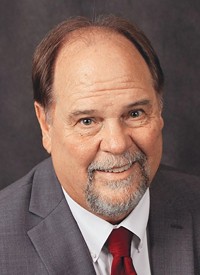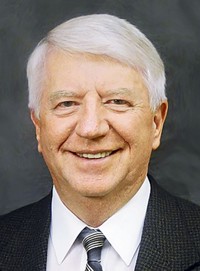Advertisement
Grab your lab coat. Let's get started
Welcome!
Welcome!
Create an account below to get 6 C&EN articles per month, receive newsletters and more - all free.
It seems this is your first time logging in online. Please enter the following information to continue.
As an ACS member you automatically get access to this site. All we need is few more details to create your reading experience.
Not you? Sign in with a different account.
Not you? Sign in with a different account.
ERROR 1
ERROR 1
ERROR 2
ERROR 2
ERROR 2
ERROR 2
ERROR 2
Password and Confirm password must match.
If you have an ACS member number, please enter it here so we can link this account to your membership. (optional)
ERROR 2
ACS values your privacy. By submitting your information, you are gaining access to C&EN and subscribing to our weekly newsletter. We use the information you provide to make your reading experience better, and we will never sell your data to third party members.
Policy
Faster Bylaw Reviews For ACS Divisions & Local Sections
New process will reduce the backlog of out-of-date unit bylaws
by Harmon B. Abrahamson, Chair, Committee On Constitution & Bylaws
November 4, 2013
| A version of this story appeared in
Volume 91, Issue 44

I have been chair of the Committee on Constitution & Bylaws (C&B) since 2011. I was an associate member in 2006–07 and have been a full committee member since 2008. During that period, there have been a lot of changes, not only to the ACS Governing Documents (www.acs.org/bulletin5) but also to unit bylaws. In fact, from 2010 to 2012, C&B certified bylaw changes for divisions and local sections at a rate more than three times as high as was typical a decade earlier. The peak came in 2011, when the committee certified 28 sets of unit bylaws.
Despite that tremendous activity, 108 local sections and three divisions have not updated their bylaws since 1999, out of the 187 local sections, 32 divisions, and five international chemical sciences chapters in ACS. We understand that volunteers have more important things to do than updating bylaws, but keep in mind that bylaws, both on the national level and on the unit level, are the rules and regulations that govern how you do business. If your unit bylaws have not been updated, they likely still refer to outdated membership categories and do not allow you to conduct elections through electronic means.
With an eye toward reducing the backlog of out-of-date unit bylaws, I am happy to announce that C&B has developed an expedited bylaw review process. This process uses C&B’s model bylaws as a template and must be followed exactly. Otherwise the unit bylaw changes will need to undergo C&B’s full review, which normally takes three to four months if subcommittees are available to do the reviews. Unfortunately, the expedited bylaw review process is not available to any unit that is incorporated.
To take advantage of the expedited bylaw review, a division or local section must first answer a few specific questions to allow tailoring of the model bylaws to the specific situation of the unit. After C&B receives the responses to the questions from either the chair or the secretary of the unit, C&B will prepare a document that shows the alterations compared with the unit’s current bylaws using Microsoft Word’s “track changes” feature. The unit must then submit the proposed bylaw changes to its members for a vote in accordance with the current bylaws, which in most cases will be by U.S. mail or in a meeting. The date of voting and the vote results must then be submitted to C&B, which will certify the new unit bylaws on behalf of the ACS Council. Of course, local sections and divisions still have the option of going through the more in-depth review process, which might be better suited to you if your bylaws need to include special provisions.
In addition to its involvement in bylaw reviews, C&B has a direct impact on ACS governance through the petition process. C&B reviews all petitions submitted to change the ACS Governing Documents. It often suggests or requires changes so that petitions meet the intent and goals of petitioners while avoiding or minimizing unintended problems for the society and its members. Although C&B is neutral on the subject of the petitions, it is in a good position to influence the society’s governance documents.
C&B also has direct input in setting rules and regulations for how the society does business, not only on the national level through the ACS Governing Documents but also at the level of ACS divisions, local sections, and international chemical sciences chapters.
We are pleased that more and more ACS Council members are making C&B their choice for committee membership. C&B is a good committee for a new councilor who wishes to learn about the inner workings of the society, as well as for more seasoned councilors who want to put their experience and knowledge of governance to work for the society. Note that C&B is a standing committee of the council, and as such, only councilors are eligible to serve on it. But even though it’s necessary for you to be a councilor to be on the committee, you’re certainly not required to be a lawyer. Good editorial skills and knowledge of the society’s governance structure are assets for C&B members.
If you’re a councilor and interested in guiding the governance of the society, we encourage you to consider joining C&B, which meets all day Sunday during ACS national meetings and Wednesday afternoons after council meetings as necessary. We also welcome others to attend the committee’s open meetings, which are typically held early Sunday afternoon during ACS national meetings.
For more information about C&B, contact Staff Liaison Barbara Polansky at either bylaws@acs.org or bpolansky@acs.org, or call (202) 872-4071 or (800) 227-5558 ext. 4071.





Join the conversation
Contact the reporter
Submit a Letter to the Editor for publication
Engage with us on Twitter